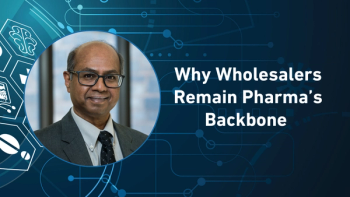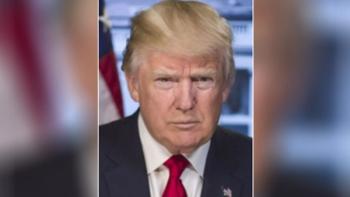
Using Blockchain to Minimize Consumers’ Risk Aversion Toward Generic Drugs
Study describes how a game theoretic model can successfully analyze how adoption of blockchain technology can reveal quality information.
Simply put, generic drugs are encountered daily at one’s local pharmacy, and are known to have the active ingredients as original drugs; the only difference is the lack of a brand name. The FDA has, in fact, confirmed this, being that agency requires that generics must be identical in terms of their pharmacokinetic and pharmacodynamic properties.
A study published in Dove Press investigates the impact of said generic drugs in medicine supply chains, along with the adoption of blockchain, and risk aversion.1
Pertaining to generics, in 2022, the market was valued at $439.37 billon and is forecasted to reach $670.82 billion by 2030, with a 5.4% compound annual growth rate (CAGR) over that time span, according to the study. Their role in medicine supply chains involve drug retailers—such as Amazon Pharmacy and Pharmacy Direct for example—acquiring various drugs from manufacturers and reselling them to the public.
Although the quality of generics is protected by the FDA, consumers have historically avoided the risk due to “quality uncertainty,” as studies have even shown that consumers view them as inferior compared to the branded alternative. This is where blockchain comes in. Blockchain is capable of securing all data that is recorded in it—providing a sense of transparency and accuracy—which can help boost trust. Both medicine supply chain members and consumers could access generic drug information via applications. For those fearing “bad actors” and counterfeiting, this ledger has proven useful, such as in the case of COVID-19 vaccines, for which a vaccination management system was utilized.
Nonetheless, a direct correlation between blockchain adoption and a benefit to generic retailers and manufacturers is still unclear, which is why the study authors decided to create a medicine supply chain model featuring a generic drug manufacturer, an original drug manufacturer, and a retailer. In essence, the generic drug manufacturer and the original drug manufacturer are often competing with each other because they wholesale drugs to the retailer, and afterwards, the retailer resells the drugs to the public. The authors analyze two blockchain adoption cases:
- Case N: Blockchain is not adopted for generic drugs, and consumers are averted to risk and unsure/hesitant about generic drugs. Generic drugs’ quality information is not shared with consumers.
- Case B: Blockchain is implemented to mitigate consumers’ aversion to risk and lack of trust in quality for said generics. Consumers are allowed to be aware of generic drugs’ quality information.
A game-theoretic model is used during this process by doing the following:
- The generic drug manufacturer and the retailer decide whether to adopt blockchain.
- The generic drug manufacturer and the original drug manufacturer decide the wholesale price of generic drugs and original drugs at the same time.
- The retailer determines the retail price of generic drugs and original drugs.
- Finally, consumers make purchase decisions without or with blockchain adoption.
Following their analysis, the study authors determined that “…the generic drugs manufacturer and the retailer decide to adopt blockchain only if consumers’ risk-aversion degree is sufficiently low. Also, a low risk-aversion degree can lead to higher whole supply chain’s profitability with blockchain adoption, and generate a win-win-win situation of blockchain adoption for the consumers, the generic drug manufacturer, and the retailer. Our findings suggest that blockchain adoption can benefit the medicine supply chain and the consumers under certain conditions. However, it also requires the coordination of supply chain members’ benefits and the disclosure of quality information.”
Reference
1. Cui Z, Liu X, Feng Z, Huang Z. Blockchain Adoption for Generic Drugs in the Medicine Supply Chain with Consumers’ Risk-Aversion: A Game-Theoretic Model Within Chinese Legal Framework. Risk Manag Healthc Policy. 2024;17:15-28.
Newsletter
Stay ahead in the life sciences industry with Pharmaceutical Commerce, the latest news, trends, and strategies in drug distribution, commercialization, and market access.




